Spring Poetry Preview: Phantompains by Therese Estacion
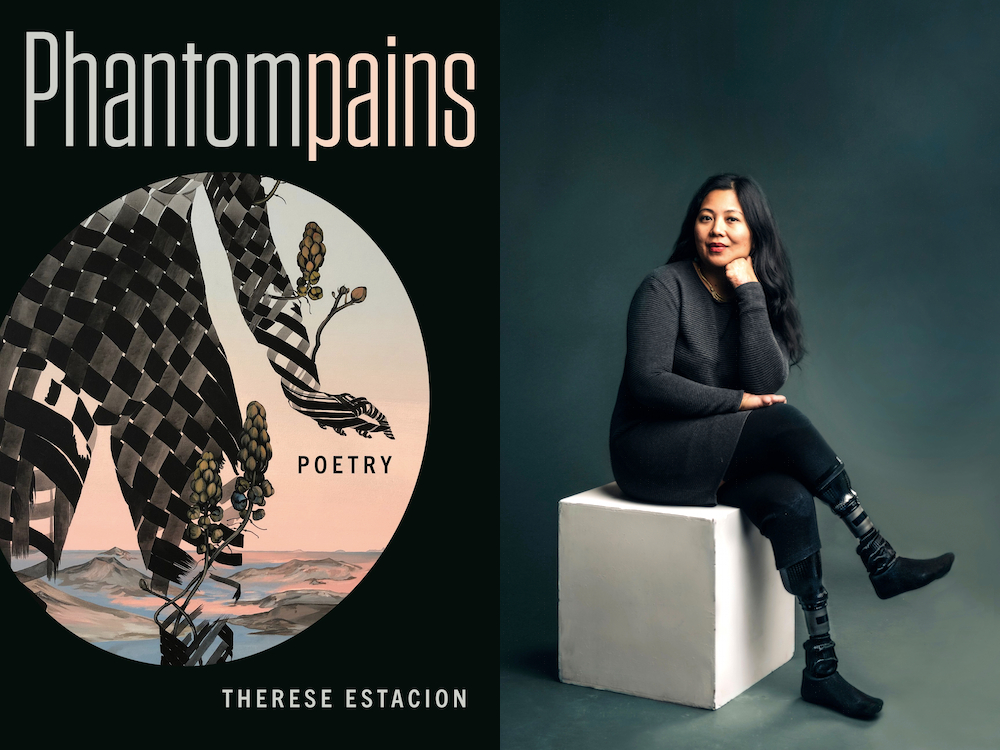
Friends of Book*hug, meet Spring 2021. Earlier this year, we unveiled the forthcoming titles in our Spring 2021 season, but now it’s time to get to know the authors and their books a bit better. For the next couple of months, we’ll be highlighting individual spring titles, and sharing some thoughts from the authors and some exclusive excerpts on the blog.
Today, we’re excited to preview Therese Estacion’s Phantompains, a visceral, imaginative collection exploring disability, grief and life by interweaving stark memories with dreamlike surrealism. Estacion survived a rare infection that nearly killed her, but not without losing both her legs below the knees, several fingers, and reproductive organs. She says she wrote these poems out of necessity: an essential task to deal with the trauma of hospitalization and what followed. Now, they are demonstrations of the power of our imaginations to provide catharsis, preserve memory, rebel and even to find self-love. Taking inspiration from Filipino horror and folk tales, Estacion incorporates some Visayan language into her work, telling stories of mermen, gnomes, and ogres that haunt childhood stories of the Philippines and, then, imaginings in her hospital room, where she spent months recovering after her operations.
We asked Estacion to introduce herself, and her debut poetry collection, to readers:
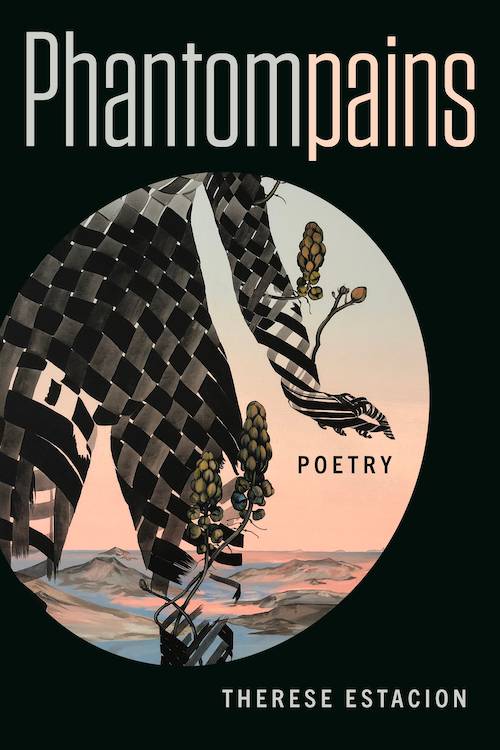
The poems in Phantompains are my attempt at capturing what I remember and felt during some of the most difficult moments in my life. I wanted to share how I truly felt since I often hid my internal turmoil from my family and friends, or disassociated from my experience. I also wanted to write poetry that would challenge people’s perception of disability and the Filipinx community. Two identities that are often marginalized and “othered.”
Despite my desire to tackle difficult emotions like anger and heartache, I also thought about the reader a lot when I wrote the book. I wanted to make sure that they enjoyed my book, went beyond misery, and felt humour and irreverence as well.
I am excited for readers to get to know me better through my poetry. I am excited for readers to, also, enjoy some of the Filipino folktales I heard growing up as a child. I am also hoping that my poetry will change the way people perceive disabled folks or folks living with a disability and Filipinx people. I also hope that my work takes readers on a journey. I am excited for readers to meet the hidden parts of myself.
“Phantompains is a text of rare power, birthing a brave new world flush with pain, lust, drugs and the uterus,” writes award-winning author Tamara Faith Berger. Sara Peters, author of I Become a Delight to My Enemies, writes that “[i]t’s not a book about triumph (though she has triumphed), or perseverance (though she has persevered), or courage (though she has it). To me, [Phantompains] is a book about vision and reckoning, descent and return. Therese Estacion plunged into an abyss—found suffering, dehumanization, terror—and when she emerged, she chose to make radically confrontational art.”
As promised, we’ve selected an excerpt from Phantompains, which you can read and enjoy below. This time, you can also listen: Estacion graciously recorded a reading of the two excerpted poems, “Aswang” and “Iron Body.” Phantompains is forthcoming from Book*hug Press on March 31st, 2021, and is available now for pre-order, either in our online shop or from your local independent bookstore. Be sure to stay tuned for more exclusive, never-before-seen sneak peeks of our forthcoming titles.
“Aswang”
“Iron Body”
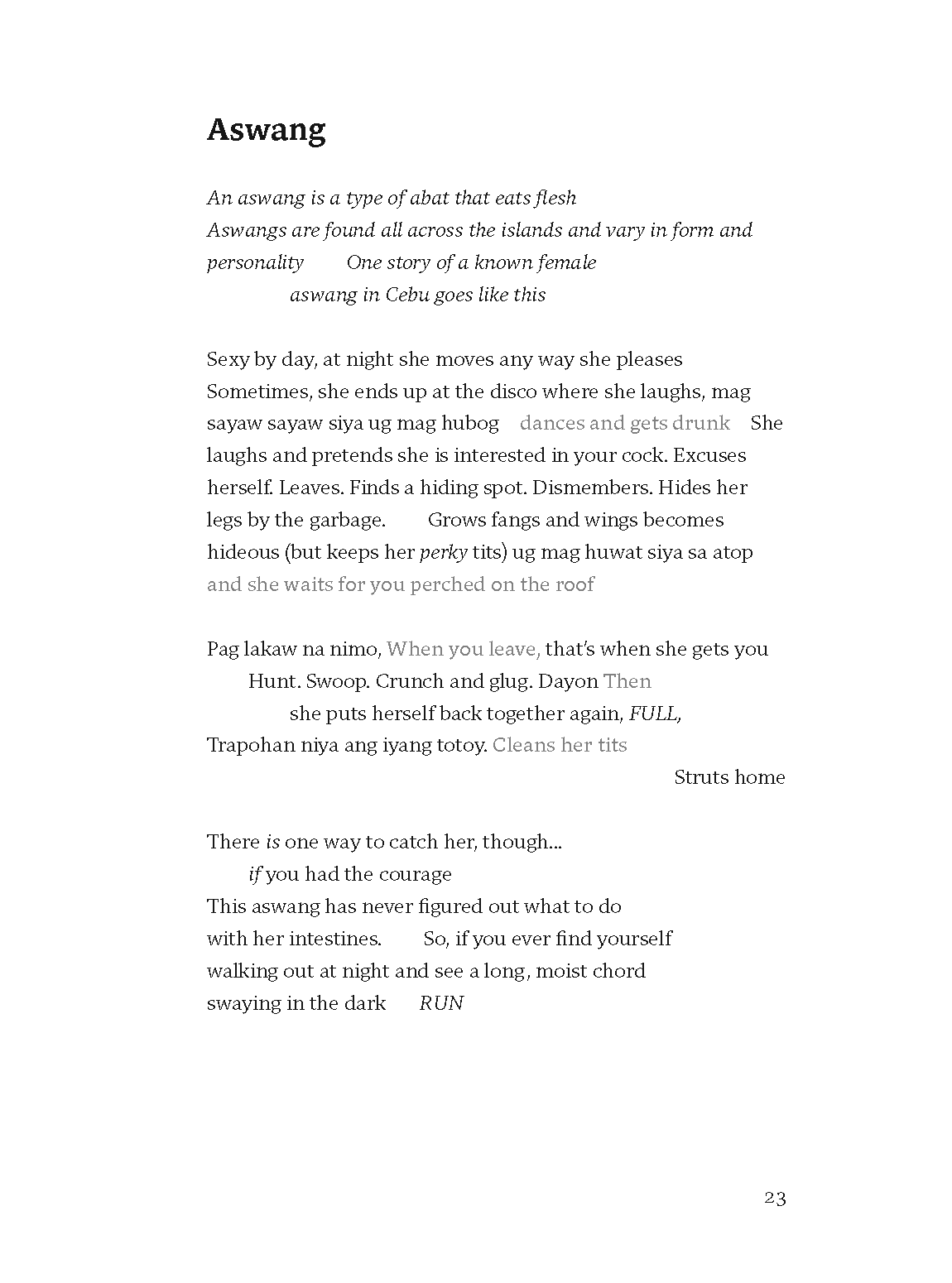
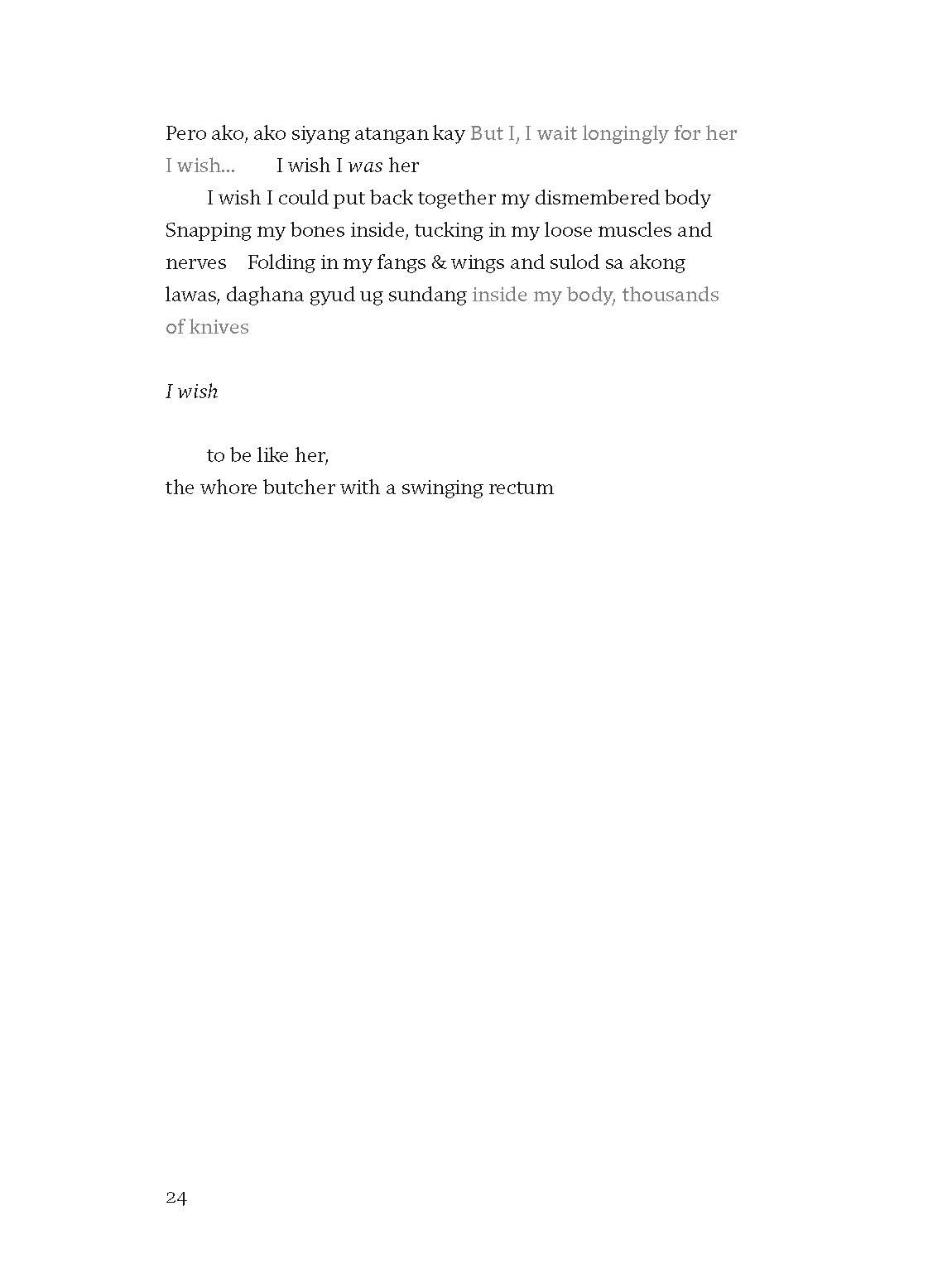
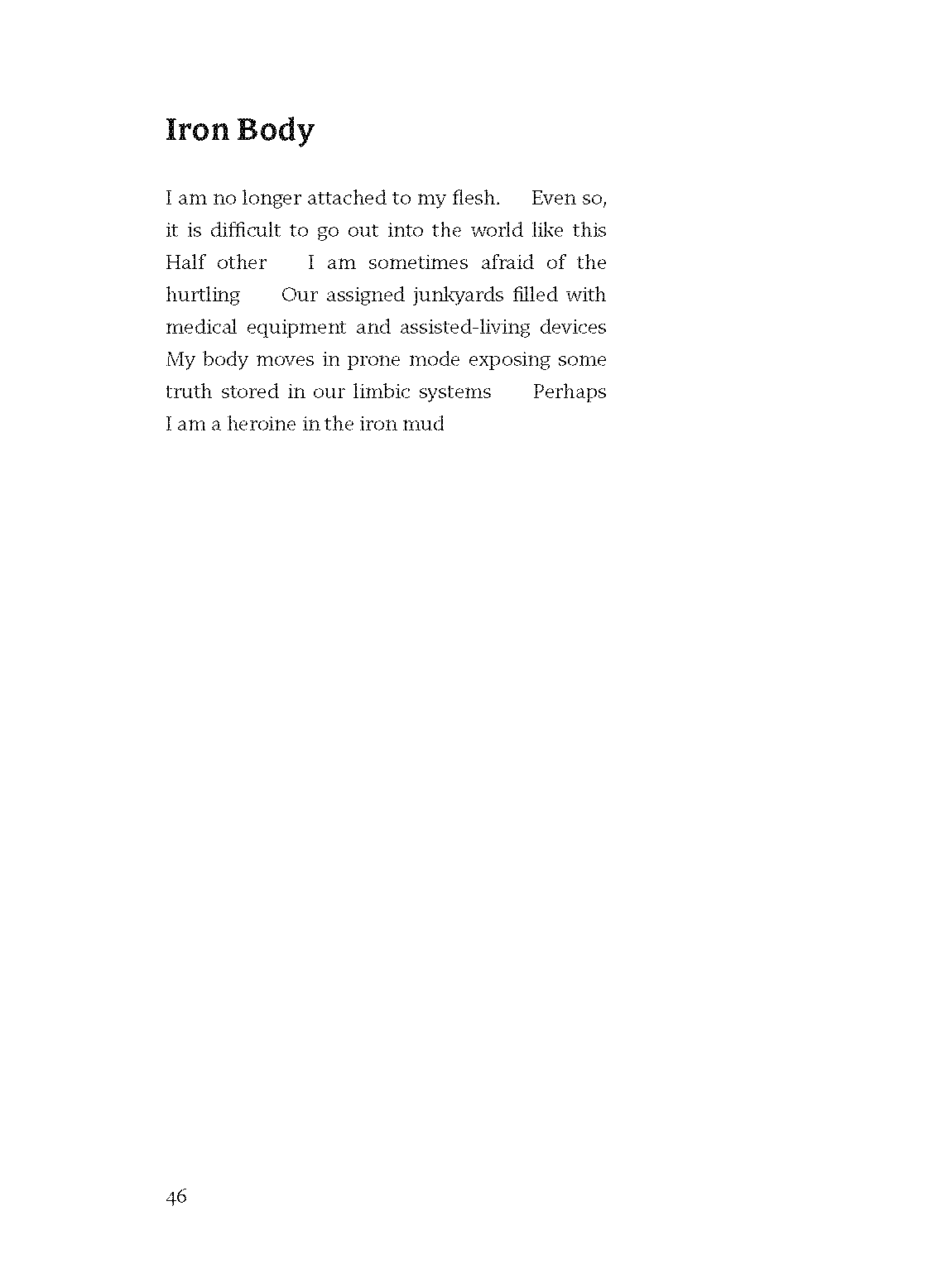
Therese Estacion is part of the Visayan diaspora community. She spent her childhood between Cebu and Gihulngan, two distinct islands found in the archipelago named by its colonizers as the Philippines, before she moved to Canada with her family when she was ten years old. She is an elementary school teacher and is currently studying to be a psychotherapist. Therese is also a bilateral below knee and partial hands amputee, and identifies as a disabled person/person with a disability. Therese lives in Toronto. Her poems have been published in CV2 and PANK Magazine, and shortlisted for the Marina Nemat Award. Phantompains is her first book.

